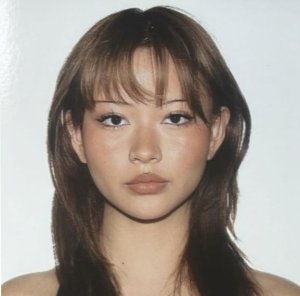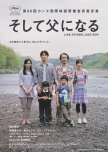This review may contain spoilers
What makes a father?
New York Film Festival 2013 - Beautiful and fragile about a family in the midst of an enormous tragedy, from Japanese director Hirokazu Koreeda - Previously, among other things, Guldbag-nominated in 2006 for Nobody Knows.
What makes a man a father? Is it the biological bond with one's children or is it the time he spends with them, the games, the laughter, the comfort? It was this question that Japanese director Hirokazu Koreeda wanted to explore when he wrote the screenplay and then made the movie Like Father, Like Son. Partly because the sense of parenthood did not come as naturally to himself as it seemed to do to his wife.
It is, of course, extremely unusual, but it has certainly happened that children have been confused at birth and the parents come home with the wrong baby. At least in the days when children's names were written on their feet with a marker, as one of the doctors says in the film. But what happens if it is discovered through a blood test that the child has already reached 6 years old.
This affects the career man Ryota and his wife Midorino. The son Keita turns out to be biologically someone else's and their biological son has instead grown up with Yukari and Yudai. Crisis - Of course! I don't know if there is a certain cultural difference between our approach and the Japanese or if cinematic liberties have been taken to move the plot forward, but according to the hospital, almost all parents who were previously affected have chosen to switch children.
The only one of the parents who seems convinced that it's the right way is Ryota. Success is important to him and Keita hasn't quite shown the progress he was hoping for. Maybe it's because the two don't share the same DNA? Ryota has also worked a lot during his son's upbringing and has not spent the time required to form the strong father-son bond that his wife has. At least he thinks so.
Despite the hint of science fiction over the story, there is nothing artificial in the way it is presented. The tone is downright serious and the emotions displayed are naked and fragile, without the slightest hint of exaggeration. The actors portray a family in the midst of a tragedy where none of the choices they can make turn out to be right. And it is above all Ryota who gets the opportunity to develop and discover what kind of father he wants to be.
What makes a man a father? Is it the biological bond with one's children or is it the time he spends with them, the games, the laughter, the comfort? It was this question that Japanese director Hirokazu Koreeda wanted to explore when he wrote the screenplay and then made the movie Like Father, Like Son. Partly because the sense of parenthood did not come as naturally to himself as it seemed to do to his wife.
It is, of course, extremely unusual, but it has certainly happened that children have been confused at birth and the parents come home with the wrong baby. At least in the days when children's names were written on their feet with a marker, as one of the doctors says in the film. But what happens if it is discovered through a blood test that the child has already reached 6 years old.
This affects the career man Ryota and his wife Midorino. The son Keita turns out to be biologically someone else's and their biological son has instead grown up with Yukari and Yudai. Crisis - Of course! I don't know if there is a certain cultural difference between our approach and the Japanese or if cinematic liberties have been taken to move the plot forward, but according to the hospital, almost all parents who were previously affected have chosen to switch children.
The only one of the parents who seems convinced that it's the right way is Ryota. Success is important to him and Keita hasn't quite shown the progress he was hoping for. Maybe it's because the two don't share the same DNA? Ryota has also worked a lot during his son's upbringing and has not spent the time required to form the strong father-son bond that his wife has. At least he thinks so.
Despite the hint of science fiction over the story, there is nothing artificial in the way it is presented. The tone is downright serious and the emotions displayed are naked and fragile, without the slightest hint of exaggeration. The actors portray a family in the midst of a tragedy where none of the choices they can make turn out to be right. And it is above all Ryota who gets the opportunity to develop and discover what kind of father he wants to be.
Was this review helpful to you?

























